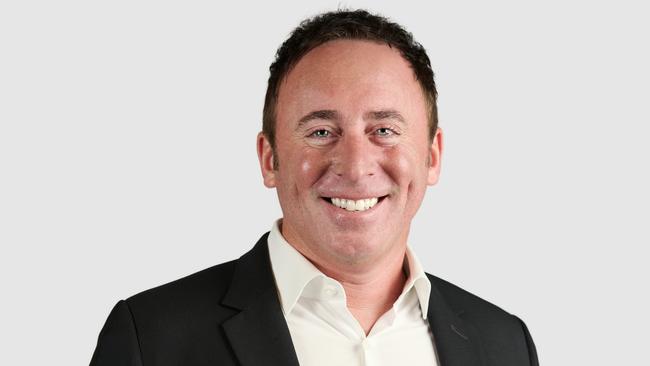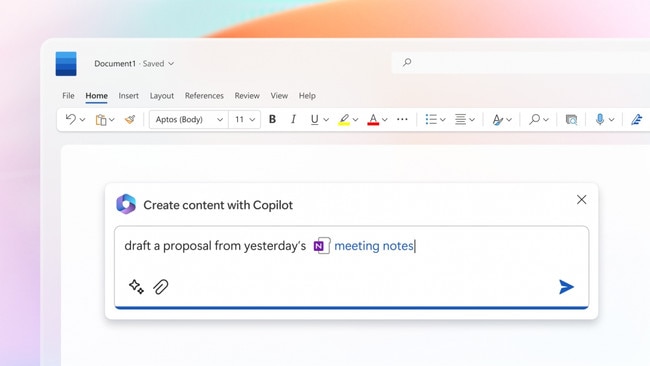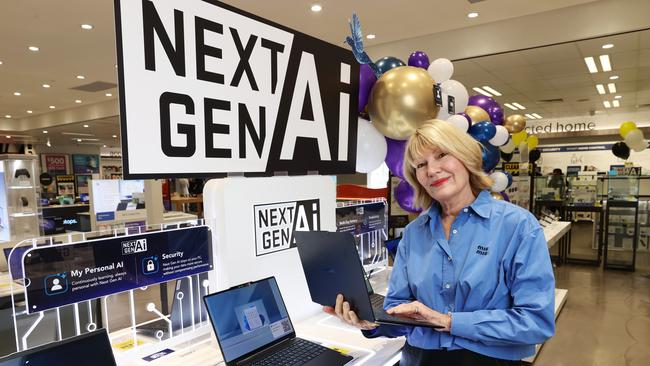Aussie workers go ‘back to school’ to sharpen tech skills as skilled migrant shortage sparks talent war
Australian companies are getting more creative to ease a chronic tech worker shortage by partnering with tech firms to ensure we don’t miss out on the artificial intelligence boom.

Business
Don't miss out on the headlines from Business. Followed categories will be added to My News.
The world’s biggest tech companies are turning to TAFE to rapidly train Australian workers so they are equipped to capitalise on the artificial intelligence frenzy and help the lack of skilled migrants entering the country.
SAS, a US-based developer of analytics and AI software, has partnered with TAFE NSW to offer a 10-week course that is aimed at sharpening “essential technical and enterprise skills”.
Australia will need an extra 300,000 tech workers by the end of the decade to fully realise the federal government’s plans for the AI boom to inject up to $600bn a year into the national economy. This is beyond the capacity of Australian universities, which produce about 6000 science, technology, engineering and mathematics, graduates annually.
Compounding this problem is a debate about skilled migration – which it is yet to recover from the pandemic – among policymakers, with Peter Dutton proposing a 25 per cent cut to the permanent intake. While he said it will help solve the nation crisis, the tech sector has criticised the proposal, saying it would limit Australia’s access to entrepreneurs, skilled workers and future go-getters, such as Robin Khuda – who arrived from Bangladesh 26 years ago and has now become one of Australia’s richest people after selling the data centre empire he founded for $24bn.
But companies are thinking more creatively to help upskill local talent, SAS developed its course – which will be available through the Applied Institute of Technology Digital at TAFE NSW Meadowbank – in collaboration with Microsoft, Maquarie University and the University of Technology Sydney.
Microsoft is also offering an AI Academy for its business clients in Australia to train staff in how to best use the much hyped technology.
Craig Jennings, vice president at SAS Australia and New Zealand, says there was a “significant gap between what the industry expects from graduates and market demands in today’s data-driven world”.

Mr Jennings said Australia had yet to recover from pandemic-era border closures slamming the brakes on the inflow of skilled migrants – which has also put more pressure on employers and wages as competition for talent intensifies.
This threatened to derail the touted $600bn in annual economic benefits that the company is forecasting will start by 2030.
“Since Covid, it’s been very apparent that we haven’t had the inflow of talent from abroad. I mean, I’ve worked for a number of software companies, and we’ve all struggled with the same thing – trying to attract the right talent in Australia but also trying to get through the visa process,” Mr Jennings said.
“There’s only so many people that are allowed in the country every year with these skills, so there is a huge market for it. And every large organisation – as well as these software companies – are just fighting for the same talent in that market. So unless we provide these course – plus more – we’re just simply not able to deliver on this and as a result you are going to see a huge missed opportunity in terms of AI adoption.”
Mr Jennings said, adding that people without a background in tech could apply for the course.
“This new program is relevant for those seeking a career change into a booming sector and those seeking to expand their skills beyond developer or business analyst remits. At SAS, we work with organisations across sectors, such as retail, health, utilities, and finance, and we are recommending they consider their workforce participation in this new program, as they seek to maximise data for smart and innovative decision.”
The course costs about $1500 for NSW residents who are eligible for state government subsidised TAFE courses, and $3,300 for Australians who live outside NSW.

Harvey Norman chief executive Katie Page said the transformation AI is heralding is “unprecedented” after Microsoft released its Copilot+ PCs earlier this year, thrusting the technology deeper into the mainstream.
Microsoft’s Work Trend Index shows that 84 per cent of workers in Australia and New Zealand are using generative AI at work. But while business leaders recognise the importance of AI adoption in remaining competitive, many struggle to turn individual productivity gains into widespread impact.
This is why Microsoft launched its AI Academy, which it said aimed to “accelerate AI capabilities” across different companies. More than 4100 workers at Australia Post, National Australia Bank, the Western Australian government, Bank of Queensland and ASB Bank, have participated in the academy’s pilot, prompting the program to be expanded across the Asian region.
“The AI Academy addresses a strategic shift in how our customers across government and industry want to upskill their employees in AI, with the focus now on all roles in their organisation rather than specific employees or teams,” said Jo Dooley, general manager of enterprise commercial at Microsoft Australia and New Zealand.
NAB executive of data strategy and execution Jessica Gleeson said the academy training was accessible and become infectious across the bank’s workforce.
“I’ve seen more senior leaders knocking on my door with how I can help them build out capabilities. And I’ve also seen more individuals with our organisation knock on our door to say, ‘how do I get involved? How do I become an AI engineer? How do I become part of a squad that’s thinking about the problem?’. And so you kind of get all of those different gamuts,” Ms Gleeson said.
More Coverage
Originally published as Aussie workers go ‘back to school’ to sharpen tech skills as skilled migrant shortage sparks talent war





